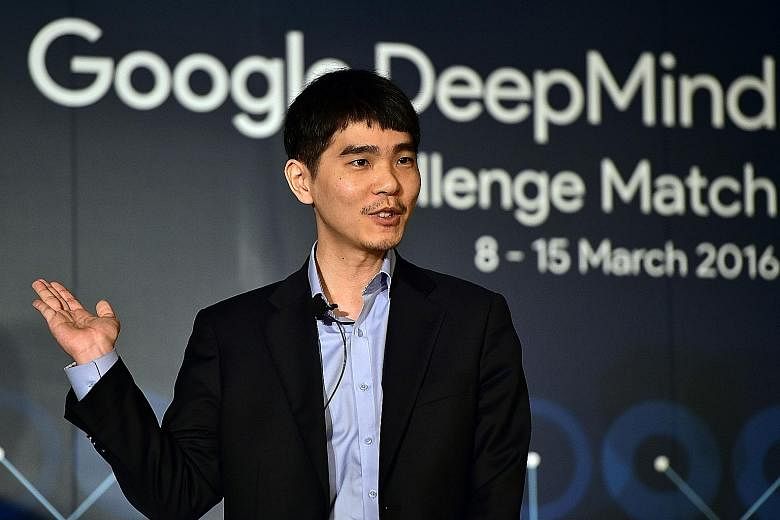He was born and raised on a small island, but Mr Lee Se Dol had big dreams to become a professional in the ancient Chinese board game called Go, or baduk in Korean.
At age 12, he shot to fame overnight by challenging then reigning champion Cho Hun Hyun to a game on the sidelines of a national competition. The Go community watched in awe as his aggressive tactics forced the older and more experienced player to a corner before he finally managed to turn the game around near the end.
The small and skinny boy who ruffled the King of Go's feathers went on to become a professional Go player himself that same year, and he has since been breaking norms in the Go circle with his bold, unconventional ways.
Now 33, Mr Lee would be going down in history as the Go grandmaster who was beaten by a Google supercomputer in what is viewed as a watershed moment in the human versus machine debate.
His five-day match with AlphaGo, an artificial intelligence program that is able to narrow down millions of possible Go moves and mimic a human player's thought processes, will end only tomorrow, but the result is a foregone conclusion after he lost the first three.
He won a face-saving fourth match yesterday.
Audiences around the world let out a collective sigh of disappointment when Mr Lee made a wrong move on the board early in the first game last Wednesday and failed to regain any ground later on. His third loss on Saturday sealed his defeat.
It is a coup for the scientists behind AlphaGo, which first beat European Go champ Fan Hui, a Chinese-born two-dan player (on a professional scale of one to nine), last October. Mr Lee's defeat is more significant as the nine-dan player, with 18 world titles under his belt, is deemed one of the most brilliant minds in a game that is one of the most complex ever invented.
A deflated Mr Lee, addressing the media after Saturday's match, admitted to feeling immense pressure. He also apologised to his supporters for "coming out lethargic" against their high hopes.
Will the defeat be too bruising for his ego? Only time can tell, but one thing's for sure - Mr Lee is not one to cower from challenges, and he has more than once risen above controversy.
Described as bold, audacious and arrogant, he is the antithesis of a sagely Go master exuding Zen, wisdom and humility. He is not shy to proclaim himself as the best Go player ever and not afraid to pit himself against age-old traditions in the game.
As a rising three-dan player in the early 2000s, he questioned the Go ranking system in South Korea and refused to participate in exams to advance in levels as he felt they were "meaningless".
The ranking committee eventually relented and allowed advancement on the merit of winning competitions. Within a few months in 2003, he was promoted to the highest level of nine dan after bagging several championship titles.
In 2009, he stirred another storm when he attacked what he felt were unfair practices within the Korean Baduk Association (KBA), such as professional players having to pay 5 per cent of their prize money to the association.
More recently in 2013, he criticised baduk hagwons (private institutes) for their over-emphasis on teaching tricks to win games, instead of a more wholesome approach.
That same year, at the peak of his career after amassing 1,000 wins, Mr Lee, who is married with a daughter, announced plans to retire within three years.
Known as a free spirit in the world of Go, Mr Lee was born the youngest of five children in Bigeumdo island located off the south-western tip of the Korean peninsula. He started learning Go at the age of five under the watchful eyes of his late father, a five-dan player, and left the island at nine with his second brother to train under Go master Kwon Kap Yong.
His father had named him Se Dol with the hope that he could "rule the world with stones", as his name suggests, and he did not disappoint.
By 2012, he was the highest-paid Go player in South Korea, pocketing 720 million won (S$830,000) in prize money that year alone.
In an interview with JoongAng Ilbo newspaper in 2013, he said: "I want to remain a living legend. I want to be the first person people associate with baduk. I want my games to remain pieces of art."
What now, after his defeat by AlphaGo? A glimpse of the future can be found in his address to the media a day before the match.
"It's inevitable that humans would, one day, be defeated by artificial intelligence. If I lose, it might have some impact to the reputation of Go, but it will not destroy the value and beauty of the game itself."


